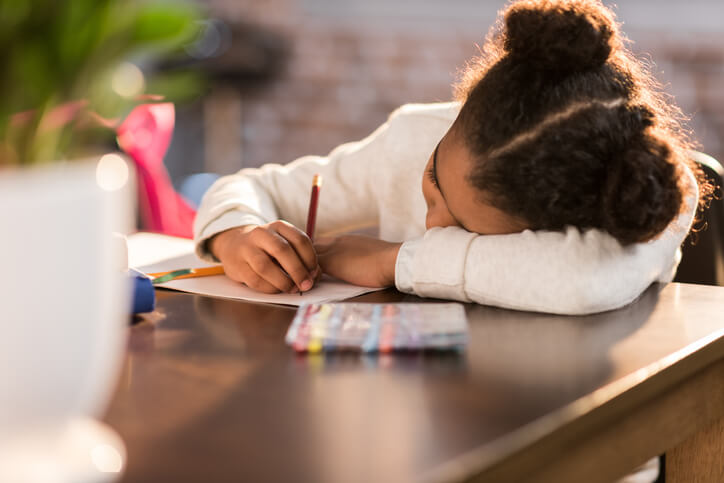Do you sleep enough? Do your children sleep enough? How much sleep is enough sleep, and why does it matter? To answer these important questions, I am using the book called The Self-Driven Child: The Science and Sense of Giving Your Kids More Control over Their Lives (by William Stixrud & Ned Johnson), as a resource for this article.
Here’s what experts/scientific studies say:
- if we need an alarm clock in the morning, we are sleep-deprived
- if we need caffeine during the day to keep us going, we are sleep-deprived
- 50% of teenagers sleep less than 7 hours per night (in USA)
- brain scans of teenagers who sleep less than 7 hours per night look like those of people with narcolepsy
- bad habits (eating late, eating junk food etc.) are exacerbated by lack of sleep
- sleep is the equivalent of brain food
- sleep “cleans” the brain every night, giving it a fresh start in the morning
- 6 hours or less per night is considered sleep insufficiency
Sleep deprivation is a form of chronic stress.
- higher cortisol levels, higher blood pressure, inflammation, impacts insulin production, decreases appetite, depression
Emotional control is dramatically impaired by sleep deprivation.
- the amygdala becomes more reactive to triggers; sleep-deprived teens are more likely to use caffeine, nicotine, alcohol, and drugs to cope with the mood swings
There is a strong correlation between insufficient sleep and depression.
- the connections between the prefrontal cortex and the amygdala are weakened when sleep is deficient, similar to PTSD, bipolar disorder, and other psychiatric syndromes
Sleep deprivation has physical implications.
- obesity; weakened immune system
Sleep supports learning.
- 6-th graders who slept 35 minutes less than usual for 3 consecutive nights, answered at 4-th grade level in a test compared to their peers ( this means that they lost the equivalent of 2 years of cognitive / academic power)
- when we sleep, the brain replays experiences and information, which helps with long-term memory
- sleep makes room for new learning the next day
How much sleep do kids need?
- preschoolers: 10-13 hours per night
- 6-13 year old: 9-11 hours per night
- 14-17 year old: 8-10 hours per night
- 18-25 year old: 7-9 hours per night
General tips to help your child get enough sleep:
- bedtime routines are very important, from an early age
- limit screen time, especially before bed time ( 1-2 hours before bed time, no more screens or smartphones)
- dim the lights early on in the house; keep lights-off time consistent every night
- cool down the house for optimal sleep
- have dark curtains covering the windows
- in some families, co-sleeping is welcome; you and your family knows best; there is no right or wrong rule about co-sleeping
- spend 1:1 time with your child, including your teenager, during the day, and / or evening
- create a culture of connection and togetherness in the evenings by cooking together, playing, walking, watching a movie ( together), and most importantly laughing together
- pay attention to the tendency for isolation in tweens and teens ( I’ll be in my room!) and keep inviting them in, offering your availability to them ( your time, gentle presence, and genuine interest into their worlds; listen more, lecture less)
- model the behavior you want to see in your child , such as : turn off your phone 1-2 hours before bed time; don’t use your phone at the dinner table or when you play together; ideally, no TV in your bedroom, or turn it off early; read a book before bed; write in your journal; etc
***ANNOUNCEMENT***
Speaking of tweens and teens: if your child is at this age, I highly recommend this 6-week class offered by my mentors from Hand in Hand Parenting. You will not regret it! Registration and more details: click here.
***WORK WITH ME THIS SUMMER*** LIMITED TIME OPPORTUNITY
I am accepting 10 new clients for 1:1 sessions, for the summer months ( May, June, July and August). Contact me today to start working with me 1:1.
LIMITED SPOTS. LIMITED TIME.

